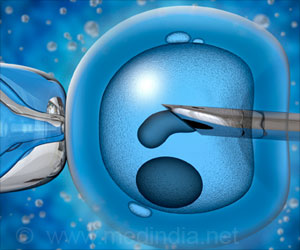From urinary tract infections (UTIs) to cancer, plant-based compounds like pectins and phytochemicals are proving their power in disease prevention. Science is catching up!
- Certain plant extracts, like Solidago gigantea, can reduce bacterial adhesion and survival, offering potential alternatives to antibiotics for UTIs
- Pectins from fruits like papaya and passion fruit have been linked to chronic disease prevention and gut microbiota regulation
- Scientists are modifying fruit-derived pectins to create future food supplements and chemotherapy adjuvants , opening new possibilities in medicine
The white part of an orange (albedo) is packed with pectin, a fiber that may help prevent chronic diseases and even aid in cancer treatment! #plantmedicine #pectinpower #sciencemeetsnature #medindia’
Can Plant Extracts Help to Treat and Prevent Infections?
Ulrich Dobrindt, a professor at the University of Munich in Germany, claims that various phytochemicals- natural chemical substances- found in medicinal plants work in various ways to eliminate bacterial infections and strengthen the host's defenses. Because of this, there is increasing interest in using plant extracts to treat and prevent urinary tract infections (UTIs), which are currently treated with antibiotics and are among the most frequent illnesses in the world."Even though these plants have well-established anti-inflammatory, antipyretic, and analgesic properties, little is known about their active ingredients, which include flavonoids, alkaloids, and terpenoids, and how they affect pathogen cells. Many don't have this impact, but some are antibacterial," the researcher stated.
How Plant Extracts Decrease Survival of Pathogens in the Bladder
In order to better understand how plant extracts affect the innate immune response and the epigenetic regulation of gene expression (biochemical mechanisms that activate and deactivate genes), German researchers have created infection models. The German pharmacopoeia, for instance, is researching the effects of traditional plants with urological activity on bladder cells.Certain aqueous plant extracts (from species like Solidago gigantea and Equiseti herba) were found to significantly decrease the adhesion and survival of Escherichia coli in human bladder epithelial cells, according to research conducted in partnership with scientists at the Federal University of Minas Gerais (UFMG) in Brazil.
Ulrich stated, "We saw a significant decrease in this bacterium's adhesion and proliferation in bladder cells."
Fruit Fibers Linked With Decrease in Chronic Non-Communicable Diseases
Technological prospection and assessment of the biological effects on humans of non-digestible water-soluble polysaccharides (bioactive polysaccharides), like pectins, have been the focus of a group affiliated with the Food Research Center (FoRC) in Brazil, one of FAPESP's Research, Innovation and Dissemination Centers (RIDCs).Pectins, which comprise a significant amount of the fiber in papaya, passion fruit, and citrus fruits, have been associated with a decrease in chronic non-communicable diseases.
However, the rapid ripening of fruits like papayas makes it difficult to extract these chemicals. This softens the pulp and changes the chemical structure of the pectins, which are associated with biological impacts including gut microbiota control.
Enzymes that alter the pectins' structure during fruit ripening lessen their advantageous biological effects. However, to exhibit beneficial effects in the intestine, passion fruit and citrus pectins need to undergo chemical modification, according to João Paulo Fabi, the project coordinator and professor at the University of São Paulo's School of Pharmaceutical Sciences (FCF-USP), who spoke to Agência FAPESP.
Creating Pectin-Based Food Product or Supplement
In order to achieve this, the Brazilian researchers devised methods for removing pectin from the albedo of oranges and passion fruit, which is the white portion between the peel and pulp that is typically thrown away when the fruit is processed to make juice. They also modified the fruit in a lab setting to raise its biological activity by lowering its molecular complexity.A patent for the method of removing pectin from meaty fruits like papaya and chayote was granted as a result of the development. The modification of pectin from by-products of passion fruit is the subject of a second patent application.
"We already have a working prototype for laboratory-scale pectin extraction and modification. The goal is to create a product that may be used as a food ingredient or supplement, such as flour that is high in modified pectin, according to Fabi.
Modified Pectins Could be Adjuvants to Chemotherapy
To illustrate the link between altered pectins and enhanced biological activity, the researchers collaborated with other teams to perform animal experiments."Clinical trials [involving modified pectins] as adjuvants to chemotherapy treatment of colon cancer or even as beneficial modulators of the intestinal microbiota can be developed based on these preclinical studies," the researcher stated.
Reference:
- Studies evaluate the health effects of bioactive compounds obtained from plants - (https://www.eurekalert.org/news-releases/1078657)
Source-Medindia










